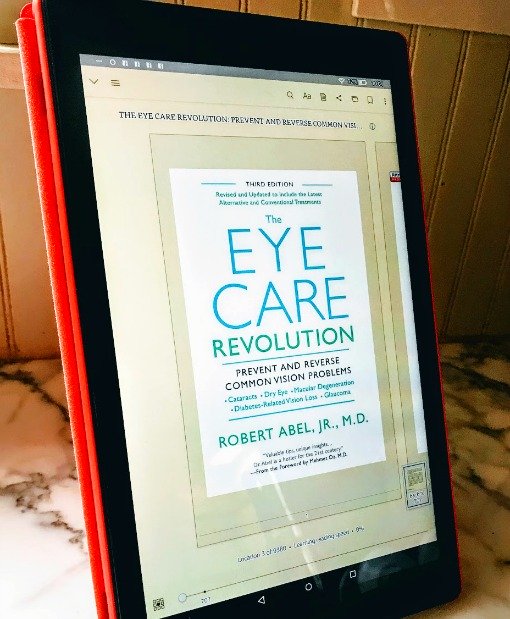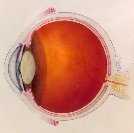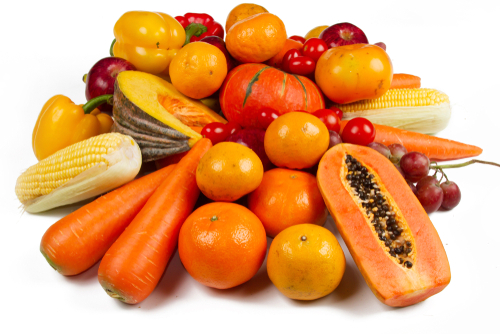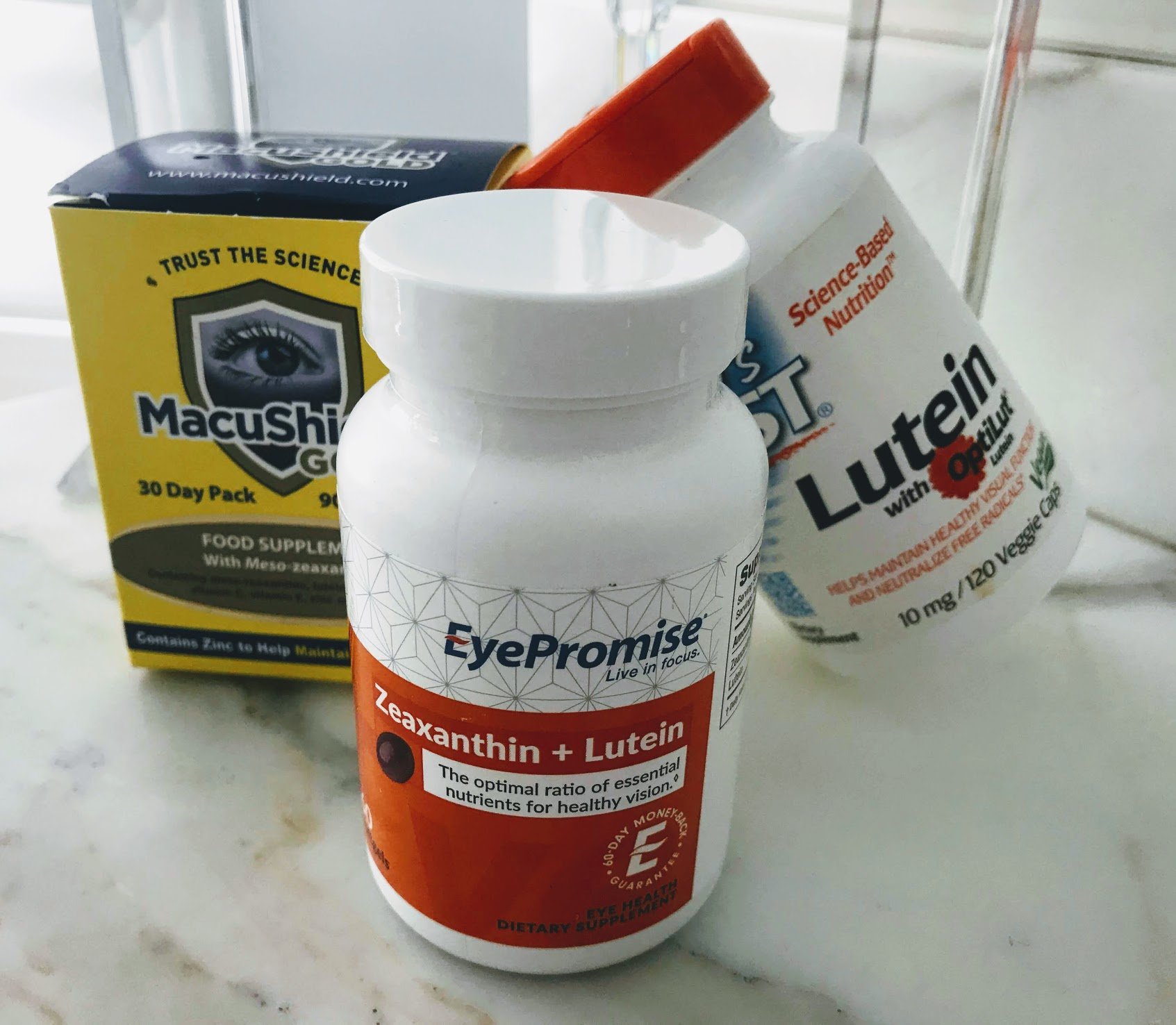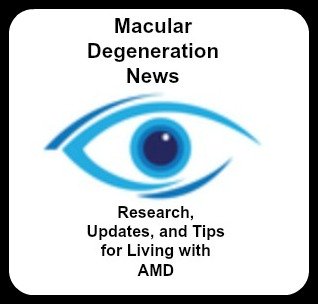Macular Degeneration Prevention
Can You Prevent Macular Degeneration?
Macular degeneration prevention is possible according to low vision specialist Dr. Edward Paul.
"New evidence now suggests that patients at risk for AMD may actually be able to prevent the disease with nutritional supplementation."
Are You at Risk for Developing Macular Degeneration?
Although awareness of macular diseases is increasing, many people are still unaware of this retinal condition, the symptoms of AMD or that they may be at risk for developing it.
Some links in the following sections are eBay or Amazon affiliate links, which means that if you purchase a product through them I receive a small commission. There is no extra cost to you. Find more details on this page.
Even our own family members who know of their strong family history of AMD, seem not to be too concerned that heredity and genetics play a strong part in who does or who does not get macular degeneration.
My husband's father and many of my husband's aunts and uncles all had
age related macular degeneration. Not only does this put him at a higher
risk of developing AMD, it also increases the risk for our adult
children and grandchildren. Find out what else puts a person at risk for developing AMD:
Macular Degeneration Risk Factors
Can You Prevent Macular Degeneration?
As baby boomers continue to age, vision loss due to macular degeneration is or should be a concern for all who are aging - and isn't that all of us? In that category myself, with a husband who has a strong family history of AMD, we are just as concerned as you are about preventing AMD.
We are becoming educated on macular degeneration prevention and the cause of macular degeneration - not only for ourselves but for our children and grandchildren as well. The question is or should be, can I/we prevent macular degeneration? Many experts think so.
One book that I recently read is The Eye Care Revolution: Prevent And Reverse Common Vision Problems, Revised And UpdatedHe explains that the health of the eye is not separate from the rest of your body... but rather if degeneration or circulation problems are occurring in the eye, they are occurring in the rest of your body as well. "The Eye Care Revolution is about treating the whole person, not just the symptom. By looking for deeper causes, I have found I can more effectively prevent and treat common eye diseases."
Robert Abel, MD, Ophthalmologist and Author
It is a great read if you are interested in being proactive in your macular degeneration prevention.
The Eye Care Revolution: Prevent And Reverse Common Vision Problems
As a registered nurse, the best advice I can give you is to be an involved, educated patient who is willing to make diet and lifestyle changes to prevent rather than treat AMD.
Two other excellent resources written by board certified ophthalmologists who are macular degeneration specialists are Macular Degeneration: The Complete Guide to Saving and Maximizing Your Sight and Macular Degeneration: A Complete Guide for Patients and Their Families.
Do not wait until you are experiencing macular degeneration symptoms. Take charge of your health NOW so that your concern is macular degeneration prevention and NOT macular degeneration treatment.
Sunglasses CAN Really Make a Difference!
Wearing sunglasses is the first and easiest way to protect your eyes and to prevent eye damage due to UV-A and UV B sunrays.
As you already know the sun's rays can cause damage to the retina and cause cataracts. The retinal cells are very vulnerable to the damages of oxidization since they are exposed to ultraviolet light. That is why it is so important to protect our eyes with sunglasses that provide 100% UV-A and UV-B protection.
However, you may be wondering do I have to buy the most expensive sunglasses to get the best protection?
To read more on how choosing the right sunglasses can help you prevent macular degeneration click here:
Sun Glasses and Macular Degeneration
Macular Degeneration and Exercise
It is no surprise that what is good for your total body health, is good for your eyes and particularly your retina as well
Cardiovascular exercise benefits the body's overall health and increases the efficiency of the circulatory system - which helps with blood flow to the heart, the lungs, and to other parts of the body... like the retina. In macular degeneration there is a problem with getting oxygen rich blood to the macula and removing built up waste.
So it is no surprise that researchers from the University of Wisconsin found those with an active lifestyle were 70% less likely to develop macular degeneration than those who did little or no exercise.
Exercise has been shown in a study to be effective in macular degeneration prevention. I explain it here:
Exercise and Macular Degeneration
Macular Degeneration Prevention
Anti-Inflammatory Diet
What you eat and don't eat is critical to your eye health and especially for your macula and retina.
An anti-inflammtory diet includes:
√ Carbohydrates that are low in glycemic index√ Fats that are good for you and in the right ratio
√ Proteins that are low in fat and include lots of cold water fish
Chronic inflammation plays a key role in the development of many degenerative diseases, including dry age related macular degeneration.
Although there is also a genetic component that promotes inflammation, you can reduce inflammation through food and diet choices. Did you know that there are foods that are pro-inflammatory, meaning that promote inflammation? Likewise there are foods that are anti-inflammatory - they help to reduce inflammation.
Find out what you can do to reduce chronic inflammation: To read more how diet can be critical those who are concerned about macular degeneration prevention click here:
Macular Pigment Density
The macular pigment (MP) is comprised of two important antioxidants - zeaxanthin and lutein.
In the study called A One Year Study of the Macular Pigment: The Effect of 140 Days of a Lutein Supplement it states, "A low density of macular pigment may represent a risk factor for age-related macular degeneration (AMD) by permitting greater blue light damage."
Think of a higher density MP as being better internal sunglasses than a less dense MP.
Find out what you can do to increase your own MP so that your eyes are better protected from ultra-violet and blue light damage:
Lutein for Eye Health
Lutein is a carotenoid that is a powerful antioxidant. This carotenoid helps make up the macular pigment, which protects our eyes from damaging forms of light.
The body cannot manufacture it so one must get it through diet or supplementation.
This antioxidant is found in deep green vegetables such as spinach, kale and collard greens and in egg yokes, corn, squash and tomatoes.
The 2004 Lutein, Antioxidant Supplementation Trial by Dr. Stuart Richer, OD, PhD, showed that lutein does help prevent age related macular degeneration.
To read more about how to get more lutein in your diet click here:
Macular Degeneration Vitamins
Macular degeneration nutritional supplements have been well researched showing that they can impact the prevention and progression of age related macular degeneration.
There are many eye vitamin and choosing one can be very confusing. With my husband's strong family history of macular degeneration, I knew that taking some kind of eye supplement would be a good idea.
Fully intending to buy some kind of eye vitamin, I went to my local drug store and found myself standing in front of all the different eye vitamins. I got so overwhelmed and confused that I walked out of the store without having bought anything.
So how do you know which supplements to take to prevent macular degeneration or to slow the progression of this retinal disease?
Macular degeneration prevention takes effort and knowledge to support your eye health through lifestyle choices and an eye healthy diet.
Go from Macular Degeneration Prevention to WebRN Macular Degeneration Home
√ Prevention of Macular Degeneration?
√ Tips for Daily Living?
√ Food Suggestions for a Macular Degeneration Diet?
√ Ideas on Visual Aids to Maximize your Sight?
If you said "yes" to any of the above, sign up for the monthly Macular Degeneration News.


